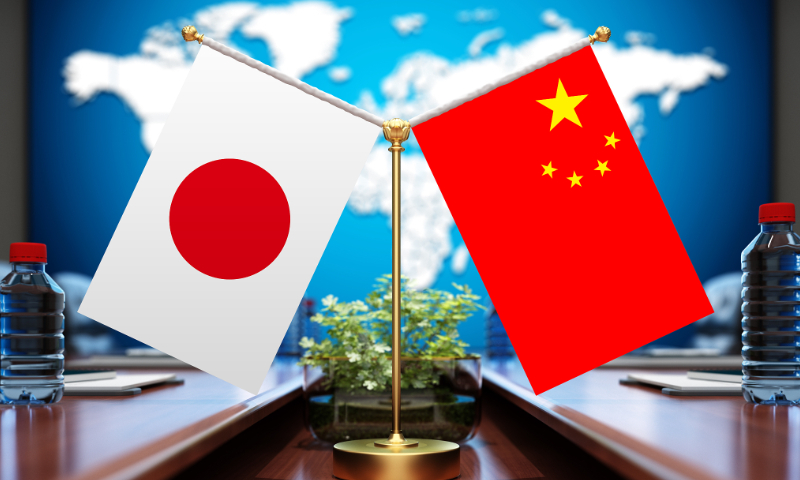Being US pawn to cause ‘irreparable damage’ for Japanese economy: expert
China’s Foreign Ministry on Monday urged the Japanese side to make “prudent decisions” in its chip export curbs targeting China and not complicate mutual trust between China and Japan, and it vowed to take “firm countermeasures” if Japan purposely restricts normal semiconductor cooperation between the two countries and harms China’s interests.
Japan said on Friday that it plans to restrict exports of some 23 types of semiconductor manufacturing equipment. The move is seen as the country aligning itself with US technology curbs on China.
China has lodged solemn representations at different levels with the Japanese side regarding the strengthening of export controls on high-performance semiconductor manufacturing equipment, Mao Ning, spokesperson of the Foreign Ministry, said on Monday.
The Japanese side has repeatedly stated to the Chinese side that bilateral trade relations are close, that Japan is committed to promoting cooperation with China and that it will not adopt a “de-sinicization” approach, Mao said.
It is hoped that the Japanese side will implement this statement through practical action, upholding an objective and fair position to maintain the stability of the global supply chain and safeguarding the mutual benefit of China and Japan and their companies, she said.
Japan’s possible export curbs on China will affect the regional and global chip supply chain. They will also cause Japanese companies to suffer losses, Mao said, noting that the Chinese market accounts for one-fourth of Japan’s semiconductor equipment exports.
In talks with Japan’s Minister for Foreign Affairs Yoshimasa Hayashi on Sunday, Chinese State Councilor and Foreign Minister Qin Gang called on Japan not to join the US in chip restrictions.
“One should not do unto others what one would not have done unto oneself. The pain remains for Japan, and Japan should not help the evil. The blockade will only further stimulate China’s resolve for self-reliance,” Qin said.
As member of the G7 and more importantly a country in Asia, Japan should do more to contribute to regional peace and stability, and build a genuine consensus of the international community, he stressed.
On Monday, Tokyo-based Nikkei Asia reported that the US has pushed G7 countries to take joint action against China if it engages in “economic coercion” against the group’s partners.
The US has already called for a joint response to Chinese “economic coercion” in working-level talks with G7 nations. It has asked for the matter to be on the agenda at this year’s G7 meetings in May, according to the report.
“The Japanese media’s hype of so-called ‘China economic coercion’ against G7 is purely smearing, which aims to maintain G7 countries’ interests through coalition,” Zhou Yongsheng, deputy director of the Japanese Studies Center at China Foreign Affairs University, told the Global Times on Monday.
However, it’s hard for G7 to reach an agreement on containment measures of raising tariffs, Zhou said. “G7 members like Germany and Italy attach importance to their own economic interests and their cooperation with China,” he said.
“As the US is ratcheting up pressure on its allies to encircle China, it’s expected that G7 countries will take further steps in their so-called ‘reducing reliance on China,'” Zhang Jifeng, a former vice director of the Institute of Japanese Studies at the Chinese Academy of Social Sciences, told the Global Times on Monday.
It’s the US that is imposing economic coercion against China as it has imposed sweeping but unreasonable crackdowns on Chinese firms including Huawei and TikTok, while Japan blindly follows the US’ lead and acts as its pawn in imposing economic coercion and “tech decoupling” against China. This will cause irreparable damage to the Japanese economy, according to experts.
China is the largest trade partner of Japan, with bilateral trade accounting for around 23 percent of Japan’s total. Thus, if Japan moves to weaken trade ties with China, it would severely batter the Japanese economy that is suffering a slow recession, Zhang said.
In 2022, bilateral trade declined by 3.7 percent year-on-year to $357.4 billion. South Korea replaced Japan as China’s fourth-largest trade partner last year, according to data released by the Chinese customs.
While Japanese politicians have repeatedly said that constructive moves are needed to improve economic and trade relations with China, no such moves have been made by the Japanese side, Chen Zilei, director of the Research Center for Japanese Economics at the Shanghai University of International Business and Economics, told the Global Times on Monday.
“Japan should show sincerity if it really wants to prevent further cooling of trade relations with China,” Chen said, urging Japan to be independent and flexible in its foreign policies.
He said that there are quite a few sectors where China and Japan could expand cooperation, which would benefit both countries and regional economic integration, including new energy, digital transformation and the green economy.
“Encircling China by following the US can’t help to reinvigorate the vitality and innovativeness of Japanese firms – rather, the Japanese side should strengthen cooperation with China and participate in the huge Chinese market to solve its bottlenecks,” Chen said.
(Global Times)




